Douglas Eugene Franco may not be a household name, but his influence and the foundational role he played in the lives of his sons—particularly his eldest, the acclaimed actor James Franco—underscore a legacy of dedication, hard work, and family values that have deeply shaped the Franco family narrative. In this comprehensive exploration of Douglas’s life, we delve into his background, educational pursuits, family life, and the indelible impact he left on his children and their careers.
Quick Bio
| Detail |
Information |
| Full Name |
Douglas Eugene Franco |
| Date of Birth |
February 20, 1948 |
| Date of Death |
September 6, 2011 |
| Age at Death |
63 |
| Nationality |
United States of America |
| Zodiac Sign |
Pisces |
| Birth Place |
Glencoe, Cook County, Illinois, USA |
| Death Place |
Palo Alto, Santa Clara County, California, USA |
| Profession |
Businessman, entrepreneur |
| Wife |
Betsy Franco |
| Children |
James Franco, Tom Franco, and Dave Franco |
| Parents |
Daniel Franco, Jr. and Marjorie Franco |
| Education |
Bachelor of Science in Mathematics from Stanford University, MBA from Harvard University |
| Skin Color |
White |
| Social Media Presence |
Not Known |
| Net Worth |
Not Known |
Early Life and Background
Born on February 20, 1948, in Glencoe, Cook County, Illinois, Douglas Eugene Franco emerged into a world that was just beginning to ride the waves of post-war prosperity. The son of Daniel Franco, Jr. and Marjorie Franco, Douglas grew up in an environment that celebrated the virtues of hard work and education. His parents, second-generation Americans of Portuguese and Swedish descent, instilled in him a robust set of values and the confidence to pursue his dreams without restraint.
Age and Physical Appearance
Douglas Eugene Franco, born on February 20, 1948, passed away at 63. He was of Caucasian descent with a white skin tone, reflecting his Swedish and Portuguese heritage. Douglas typically presented himself in professional attire, embodying the demeanor of a disciplined businessman and a devoted father, although specific physical details like height are not extensively documented.
Education and Formative Years
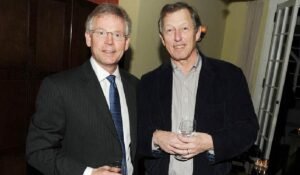
Douglas’s academic journey was marked by an insatiable curiosity and a profound appreciation for mathematics and logic. His path led him to Stanford University, where he earned a Bachelor of Science degree in Mathematics in 1971. This period of his life was not just about academic growth but also about laying the groundwork for his future. It was at Stanford that he honed his problem-solving skills, which would later influence his business strategies and his approach to parenting. Following Stanford, he attended Harvard University, where he achieved his Master of Business Administration (MBA) in 1975. His time at Harvard equipped him with a toolkit of strategic thinking and leadership skills, priming him for success in the business world.
Business Ventures and Achievements
Post-education, Douglas ventured into the world of entrepreneurship and business, where he distinguished himself as a skilled businessman. While details of his specific ventures remain limited, it is known that he applied his education and skills primarily in Silicon Valley’s burgeoning tech sector. This period was critical not only for his professional development but also for establishing the financial stability that would provide a nurturing environment for his family.
Values and Work Ethics
Douglas’s professional life was a reflection of his character: disciplined, dedicated, and always striving for excellence. These attributes were not confined to his office but were also prominent at home, where they influenced his children. He believed in the power of education and the arts as transformative tools for personal growth. His work ethic was not about achieving personal recognition but about ensuring that his family had the support and resources they needed to succeed in their own right.
Douglas Eugene Franco Marriage Life
Douglas Eugene Franco was married to Betsy Franco, an author and artist. Together, they created a nurturing home environment that fostered creativity and education for their three sons: James, Tom, and Dave Franco. Their marriage was characterized by mutual support and shared values, which played a crucial role in the upbringing of their children. Betsy’s artistic background complemented Douglas’s business acumen, creating a balanced environment that encouraged their sons to pursue diverse and successful careers in the arts and entertainment industries.
Douglas Eugene Franco Children
James Franco
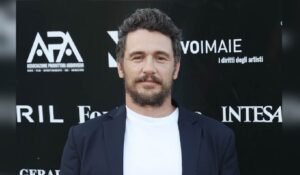
James, the eldest of the Franco brothers, is arguably the most prominent. His career in acting and filmmaking is marked by a blend of commercial success and critical acclaim. Notable for his roles in films like “127 Hours,” for which he received an Academy Award nomination, and “Spider-Man,” James has demonstrated remarkable range and depth as an actor. Beyond acting, he has also directed various projects and authored books, showcasing his multifaceted artistic talents. James’s educational pursuits in creative writing and filmmaking reflect the intellectual curiosity instilled by his father, Douglas, who always encouraged his sons to explore and develop their interests fully.
Tom Franco
Tom, the middle brother, chose a path somewhat less traveled by the public eye but equally impressive. He co-founded the Firehouse Art Collective, a significant contributor to the Berkeley art scene, providing a space for artists to create and collaborate. His work primarily focuses on sculpture and installation art, often involving community participation which highlights his commitment to inclusivity and communal art practices. Tom’s artistic endeavors embody the creative spirit fostered during his childhood, a testament to his father’s encouragement to pursue passion and community-oriented projects.
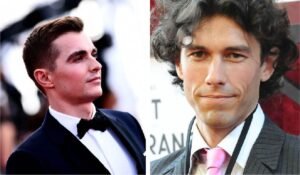
Dave Franco
Dave, the youngest Franco brother, has carved out his niche in Hollywood as both an actor and a filmmaker. Known for his roles in comedic films like “Neighbors” and thrilling heist movies like “Now You See Me,” Dave has proven his versatility and charm as an actor. Recently, he has moved behind the camera to direct “The Rental,” showcasing his skills in storytelling and film direction. This move into filmmaking signifies a continuation of the creative legacy passed down by Douglas, who believed in the power of storytelling and the arts as transformative tools.
Douglas Eugene Franco’s Personal Life and Interests
Outside of his professional and familial obligations, Douglas was a man of varied interests. He enjoyed literature, and art, and was particularly fond of mathematics as a hobby. These interests were shared with his children and became a significant part of their educational activities. Douglas was known for his calm demeanor and thoughtful approach to life’s challenges, traits that left a lasting impression on those around him.
Details of Douglas Eugene Franco’s Death
Douglas Eugene Franco passed away on September 6, 2011, at the age of 63. His death occurred in Palo Alto, California, and was caused by a heart attack. This sudden and unfortunate event deeply impacted the Franco family, leaving a profound sense of loss among his loved ones. Despite his passing, Douglas’s legacy continues through his sons, who often credit their father’s support and guidance as fundamental to their personal and professional achievements. His influence as a nurturing father and a supportive figure in their lives remains a significant part of their memories and ongoing success stories.
Impact and Memories
Today, the memory of Douglas Eugene Franco remains a beacon of inspiration for the Franco brothers. Each son has carved his path, reflecting the values and lessons imparted by their father. Douglas’s legacy is not just in the successes of his sons but in the ethical, hardworking, and loving nature he modeled throughout his life.
Financial Overview of Douglas Eugene Franco
Douglas Eugene Franco’s net worth was never publicly disclosed, reflecting his preference for privacy and a focus on family rather than personal wealth. As a businessman and entrepreneur, he primarily engaged in the Silicon Valley tech industry, where he likely accrued financial stability that supported his family’s comfortable lifestyle. While not as financially high-profile as his son James Franco, Douglas ensured his professional success translated into a supportive environment for his family, prioritizing their education and creative pursuits over public financial displays. This approach allowed him to provide a solid foundation for his children’s future successes in various artistic fields.
Conclusion
while Douglas Eugene Franco’s name might not echo through the halls of Hollywood or the galleries of art institutions, his influence is indelibly imprinted on the careers and lives of his children. His story is a testament to the quiet yet powerful impact one person can have on future generations, shaping their successes and the continuation of their family’s story.
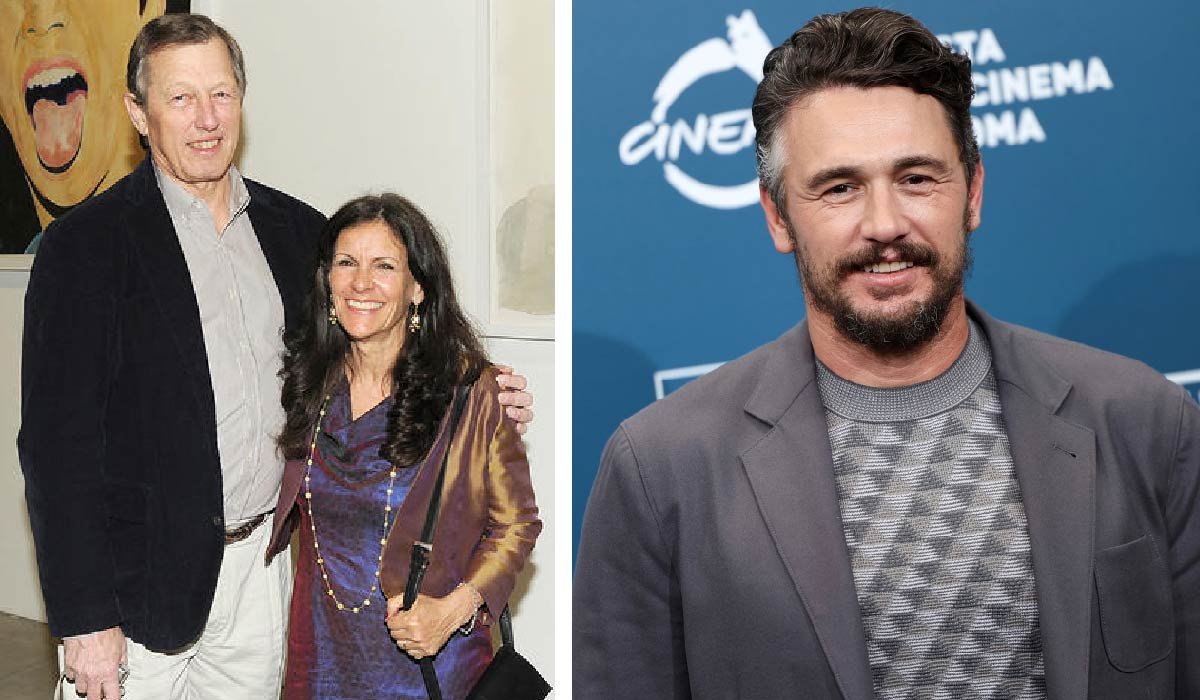
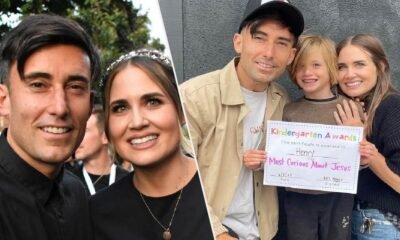
 Celebrity11 months ago
Celebrity11 months ago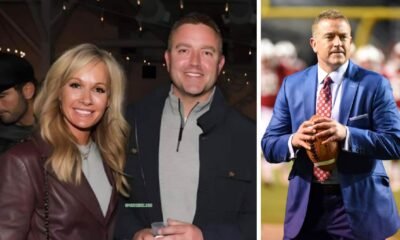
 Celebrity10 months ago
Celebrity10 months ago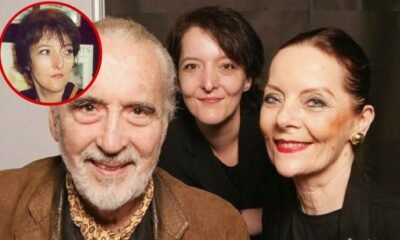
 Celebrity11 months ago
Celebrity11 months ago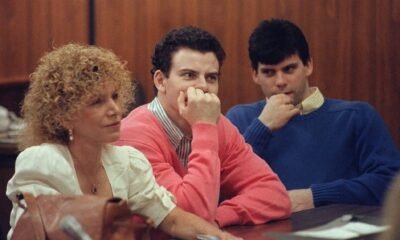
 Celebrity10 months ago
Celebrity10 months ago

















